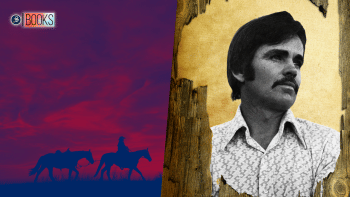The pirates of Madagascar

The Age of Enlightenment is often exhibited as a reminder of European intellectual superiority, though that notion breaks down quite easily the moment one begins to think critically. David Graeber, an American philosopher and anthropologist, has written extensively on this.
His book The Dawn of Everything, co-written with David Wengrow, talked in length about the European tendency to steal intellectual credit with excuses of literary techniques and whatnot—even in places where it did not make sense. The Dawn of Everything was a surprise bestseller, perhaps in part due to Graeber's sudden death at the age of 59. Prior to this, he had been best known in the media as one of the lead actors of the Occupy Wall Street movement, where he reportedly had come up with the slogan, "We are the 99%."
My personal discovery of David Graeber had been through his 2011 book Debt: The First 5000 years. A history of humanity that encompasses war, slavery, feminism, violence, colonialism, and tradition through our relationship with debt, it established Graeber as a true original who forsakes stale polemic in favour of creativity.
In this posthumous effort, Pirate Enlightenment, or the Real Libertalia (Farrar, Straus and Giroux, 2023), Graeber posits, in characteristic fashion, that the Enlightenment would not have happened if not for the pirates around the Malagasy coast.
The appeal of pirates is very much rooted in our sense of freedom in society, particularly of times when the political system necessitates rebellious thinking. "The toothless or peg-legged buccaneer hoisting a flag of defiance against the world," Graeber says, "is, perhaps, just as much a figure of the Enlightenment as Voltaire or Adam Smith."
Graeber is correct in assuming that the liberties and individual freedoms we often associate as children of the Enlightenment were literally part of the system of governance on pirate ships for ages.
"Pirate captains often tried to develop a reputation among outsiders as terrifying, authoritarian desperadoes," Graeber says in the preface, "but on board their own ships not only were they elected by majority vote and could be removed by the same means at any time, they were also empowered to give commands only during chase or combat, and otherwise had to take part in the assembly like anybody else."
Graeber takes this a step further, theorising that the Malagasy Kingdoms, especially the Betsimisaraka, which were founded by the children of Pirate men and local Malagasy noble women, instituted similar political autonomy and established a real "Libertalia".
That Libertalia, a rumoured pirate utopia, could have actually existed in the way we generally imagine it relies on very thin, circumstantial evidence. David Graeber acknowledges this. However, the Betsimisaraka under their founder King Ratsimilaho did, unquestionably, possess features that were celebrated by European figures to be uniquely of the Enlightenment.
Dispatches and reports of pirate activity were popular in Europe, and Madagascar held wonder with its incredible mix of people, from the Muslim Zafiraminia who hailed from Sumatra to the Zafi-Ibrahim who retained Jewish customs and claimed descent from the original Israelites.
Pirate Enlightenment is full of fascinating accounts, the most captivating of which is Pirate Henry Every's looting of Aurangzeb's treasure-laden ship on its way to Mecca, which had sparked the English to start the first international manhunt in recorded history to appease the Mughal Emperor. Every was never found, but legends of him settling down in Madagascar to rule a Pirate Kingdom had become popular in the public imagination in the early 18th century.
The reports that found their way back from Madagascar were of course, for the most part, fantasy. Graeber himself spells it out, "The first real ethnographic accounts we have of Madagascar are really notes written by a spy in order to allow a conman to better fabricate accounts of his nonexistent exploits."
From what we do know for certain, the Malagasy women played a crucial role in the development of these kingdoms. Graeber writes, "In enterprising Malgasy wives, then, pirates found a solution to their basic problem: how to dispose of large amounts of illegally obtained wealth in such a way to guarantee a secure and comfortable life. They merely had to concede power over its disposition to ambitious women traders."
The Malagasy women, who needed the independence to conduct their trade and, perhaps, an edge in nobility, actively participated in building and paving the way for the experiments that their children later carried out.
The Enlightenment being a European project has never been a serious statement, and whether or not Daniel Defoe, Hobbes, or Locke had looked toward the pirates in Madagascar is not the main crutch here. As Graeber implies, the conversational style of the Enlightenment makes it easier to see the subject of "pirate utopias" being a mainstay at the salons and coffee shops of Paris. However, the scant resources he uses to weave out the story is mired in doubts and questions. One can only hope that Libertalia, in the form of Betsimisaraka or otherwise, existed—if only briefly.
Shahriar Shaams has written for SUSPECT, Third Lane, Six Seasons Review, Arts & Letters, and Jamini. Find him on twitter @shahriarshaams.

 For all latest news, follow The Daily Star's Google News channel.
For all latest news, follow The Daily Star's Google News channel. 











Comments